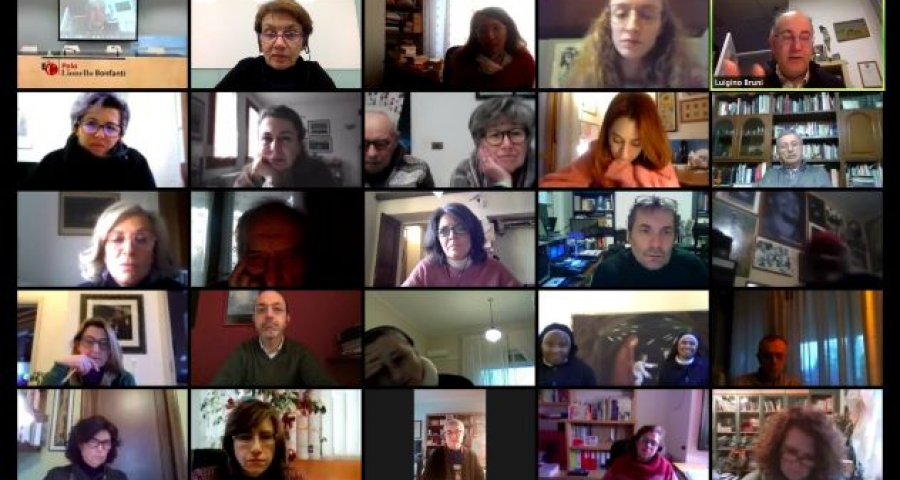SEB: OVERWHELMING THE EXPERIENCE OF (LAY) COMMENT ON THE INNOCENT PAIN OF THE RIGHTEOUS

The first 2021 online course of the School of Biblical Economics, led by Luigino Bruni, on his re-reading of the book of Job, “The misfortune of a just man” (EdB) ended yesterday,: the impressions of one of the more than 80 participants.
di Gianluca Floridia
The first 2021 online course of the School of Biblical Economics, led by Luigino Bruni, on his re-reading of the book of Job, “The misfortune of a just man” (EdB) ended yesterday,: the impressions of one of the more than 80 participants.
With each new journey, you do not know how it ends and what awaits you on the way. This is particularly true when we allow ourselves to be crossed by the words and experiences of the Bible: if we want them to be really effective – as Professor Luigino Bruni, professor of Political Economy at Lumsa in Rome and biblical scholar, reminds us – we must imagine that we do not know the ending.
Therefore, without certainty, we went to the open sea of the book of Job, to the school of Biblical Economics promoted by Polo Lionello Bonfanti. Excited to leave, many of us climbed this new Ark of the Covenant led by Job, a nomad from the middle-eastern region of Uz, in Arabia, outside the official religious and cultural borders of the time.
Once on board, unexpectedly, we discovered as travel mates not the animals of the first ark of the other just man, Noah, but the poor, the defeated, the excluded, the losers, the depressed, all the rejected of history... With the compass of Gratuitousness and Gift at the centre, to the most insidious provocation by Satan the Opponent : “Can Job (man) do good without a reward?”, we experienced the constancy with which Job held up with respect to growing adversities interpreted, according to the dominant paradigm of the principle of retribution by the theo-idelogi friends, as the right effect of those errors of his that in the end must have been made somewhere (who is pure, who without guilt?) …
The cry, almost an imploration that God can at least raise his hand, intervening as a “supporter”, as guarantor of the unsettled debt in defence of Job who fell (unreasonably) in disgrace is one of the twists and turns in the ongoing process. A process that inexorably calls us into question about our preferential option, on “which side are we on”: on the one hand, the economic-retributive theo-ideology of the official religion and of the market (of yesterday, of today) that nails defeated at their own faults, thus absolving our indifference, and on the other the redemption of the last who often await liberations that never arrived, just think of our silences – on the domination of the mafias and on corruption, on racism and on the exploitation of migrants – hurrying to make them compatible with our codes of conduct, even with the gospel …
A God so human, such as to be sued by the leader of an army of the defeated, so human as to ‘learn’ while creation proceeds, so human as to welcome complaints and blasphemies to the point of making them sacred scripture, it could not be imagined.
That part of the Book that tells us of the good news of a craftsman from Nazareth, a land of troublemakers, rude and peasants, crucified as a criminal for his embodied dreams and so subversive for Power, seems to us at this point less distant and less incomprehensible. Thanks to Job, to his book with the unresolved questions posed in the heart of Sacred Scripture and to the fundamental comment of Professor Bruni who deciphered them for us, thanks to these opportunities offered by the School of Biblical Economics.
Source:
